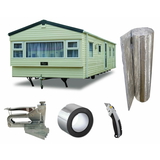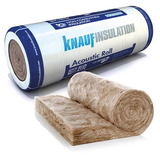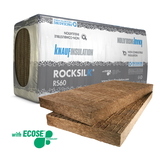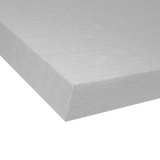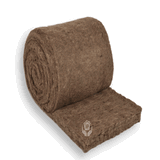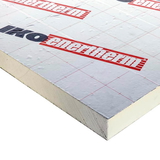- Blogs
- Caravan Insulation Tips: Keeping Cosy on the Road
Caravan Insulation Tips: Keeping Cosy on the Road
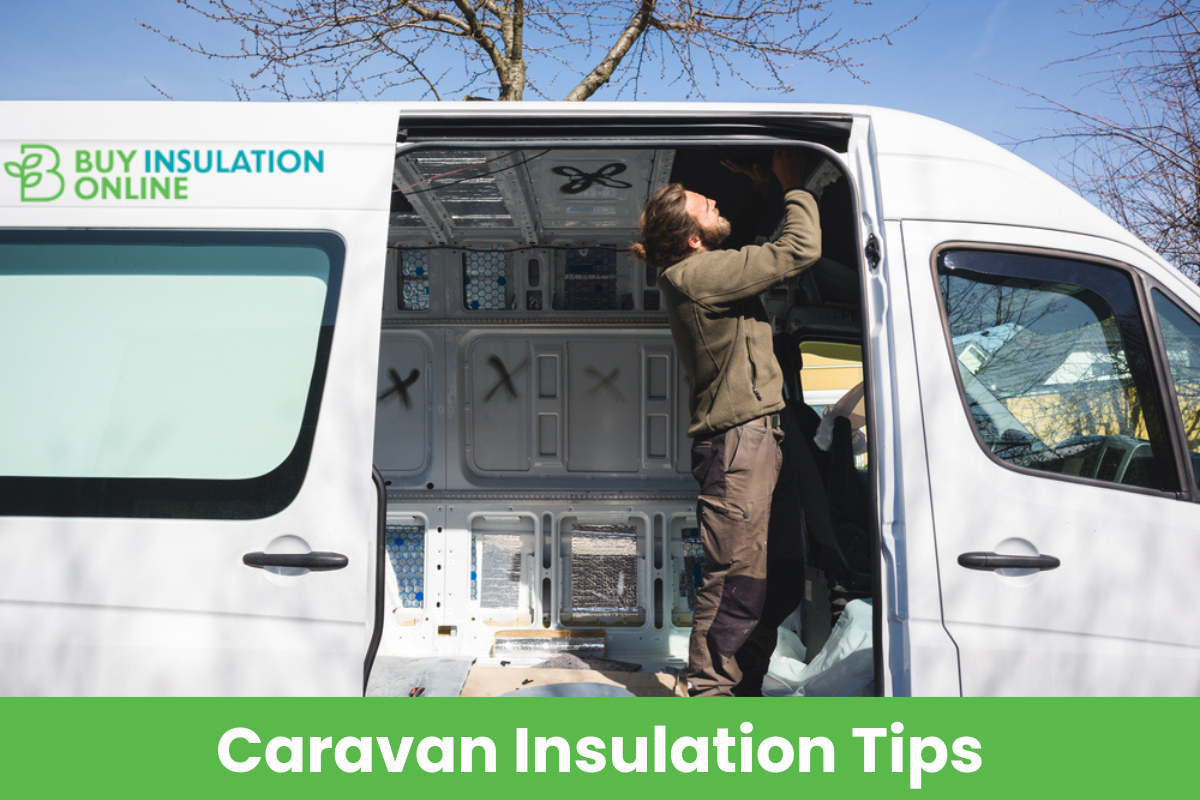
Hitting the open road in your caravan offers a sense of freedom and adventure like no other. Whether you're an experienced traveller or just starting your journey, one essential aspect of a comfortable trip is proper insulation. Caravan insulation isn't only about staying warm in the winter; it's about maintaining a comfortable temperature year-round while saving on energy costs.
In this article, we'll provide you with practical caravan insulation tips, including details on various insulation materials that can make your journey more comfortable and energy-efficient.
Why Insulate Your Caravan?
Before we get into the tips, let's briefly discuss why caravan insulation is so crucial. Insulation serves to regulate the temperature inside your caravan, ensuring it remains comfortable regardless of the weather outside. Here are some key reasons to invest in good insulation:
1. Temperature Control:
Effective insulation keeps your caravan cool in summer and warm in winter by acting as a barrier that shields your living space from outside temperature fluctuations.
2. Energy Efficiency:
Proper insulation reduces your reliance on heating and cooling appliances, leading to savings on energy bills during your travels.
3. Comfort:
Insulation helps create a cosy and comfortable environment inside your caravan, enhancing the overall enjoyment of your journeys.
Van Insulation
What to Look for When Insulating Your Caravan:
When considering insulation for your caravan, there are several key factors to keep in mind to ensure you choose the right materials and methods for your specific needs. Let's expand on what to look for when insulating your caravan:
1. R-Value and K-Value:
R-Value: This measures the insulation material's resistance to heat flow. The higher the R-value, the better it insulates. Consider the climate you'll be travelling in and choose insulation materials with suitable R-values for both hot and cold conditions.
K-Value: The thermal conductivity of a material, represented by the letter "K." Lower K-values indicate better insulating properties. Since caravans have limited space, you must maximize insulation efficiency in the available space. Look for materials with low K-values to achieve this.
2. Vibration Resistance:
Caravans are on the move frequently, so they're subjected to vibrations from the road. Not all insulation materials can withstand these vibrations. It's crucial to select materials that are resilient and won't deteriorate or shift due to constant motion.
3. Moisture Resistance:
Moisture can be a significant issue in a caravan, especially in confined spaces. Look for insulation materials that are either naturally moisture-resistant or can be paired with a vapour barrier to prevent moisture infiltration. Moisture can lead to rust, mould, and a decrease in insulation effectiveness.
4. Non-Toxic and Allergen-Free:
Ensure that the insulation material you choose is non-toxic and safe for indoor air quality. You wouldn't want dangerous gases or irritating insulation fibres in your caravan. This is especially important if you or your travel companions have allergies or respiratory sensitivities.
5. Budget:
While it's essential to prioritize insulation quality, your budget is also a significant factor. Consider the overall cost of the insulation materials, including any additional components like vapour barriers, adhesives, or sealants. Strike a balance between quality and affordability to meet your financial constraints.
6. Ease of Installation:
Some insulation materials are easier to work with and install than others. Consider your DIY skills and the complexity of the installation process. Some materials may require professional installation, while others can be tackled as a DIY project. Choose materials that align with your comfort level and expertise.
7. Space Efficiency:
Caravans have limited space, so it's crucial to select insulation materials that won't take up too much room. Some materials, like foam boards or reflective insulation, are space-efficient and provide excellent insulation without adding bulk.
8. Environmental Impact:
If you're environmentally conscious, consider the ecological impact of your insulation choice. Some materials, like sheep's wool or certain foam boards, are more eco-friendly than others. Be mindful of the environmental footprint of your insulation materials.
9. Durability:
Think about the long-term durability of the insulation. You want materials that will last and continue to provide effective insulation over the years of your caravan's use.
10. Compatibility with Other Components:
Consider how the chosen insulation materials will interact with other components of your caravan, such as wiring, plumbing, and interior finishes. Ensure that the insulation won't interfere with the functionality of these systems.
By carefully evaluating these factors, you can make an informed decision when selecting insulation for your caravan, ensuring a comfortable and well-insulated home on wheels for your adventures.
Simple Caravan Insulation Tips
 Now, let's explore some straightforward caravan insulation tips that anyone can follow while considering various insulation materials:
Now, let's explore some straightforward caravan insulation tips that anyone can follow while considering various insulation materials:
Check for Existing Insulation:
Start by determining whether your caravan already has insulation. Modern caravans often come with pre-installed insulation, but older models may lack it.
Look for materials like foam boards, fibreglass, reflective foil insulation, or even sheep's wool insulation in the walls, floor, and ceiling. If your caravan lacks insulation or has insufficient coverage, consider adding more to improve its thermal performance.
Seal Any Leaks:
Even the most robust insulation won't be effective if there are gaps or leaks allowing outside air to infiltrate. Inspect your caravan for gaps, cracks, or holes where air can escape or enter, with common problem areas being windows, doors, and seams. Seal these openings with weatherstripping or sealant to maintain a comfortable temperature inside.
Invest in Thermal Curtains:
Thermal curtains are a cost-effective way to enhance insulation. These curtains are designed to keep the cold out in winter and the heat out in summer, acting as an additional barrier to regulate your caravan's temperature. Hang thermal curtains over your caravan's windows and doors to improve insulation and privacy.
Add Rugs and Carpets:
Floor insulation is often overlooked but plays a vital role in maintaining a comfortable environment. Bare caravan floors can feel chilly, especially in cold weather. Adding rugs and carpets helps retain heat and provides insulation for your feet. Opt for thick, insulating materials to maximize the benefits of your floor coverings.
Consider Insulation Materials:
When upgrading your caravan's insulation, consider various materials available in the market:
- Fiberglass Insulation: Commonly used and cost-effective. However, it may require an additional vapour barrier and can release small glass particles.
- Sheep’s Wool Caravan Insulation: Environmentally friendly, moisture-resistant, and has excellent sound-dampening qualities. It provides effective thermal insulation.
- Polystyrene Boards: Both EPS and XPS foam boards are cost-effective and moisture-resistant. XPS boards are especially useful for insulating the caravan floor due to their higher compressive strength.
- PIR Insulation Boards: Rigid PIR boards with foil facings work as vapour barriers and offer excellent insulation. They are environmentally friendly and space-efficient.
- Spray Foam Insulation: Provides the highest R-value but can be expensive and challenging to install. It's resistant to moisture and offers excellent soundproofing properties.
- Foil Insulation: Effective insulation that saves space and improves indoor air quality. It's particularly useful for preventing heat loss through various heat transfer modes.
Upgrade Your Caravan's Door:
If your caravan's door isn't well-insulated, it can be a significant source of heat loss. Consider upgrading to a well-insulated door with weatherstripping to keep cold or hot air at bay. A properly insulated door can make a noticeable difference in your caravan's temperature control.
Use Draft Excluders:
Draft excluders are simple yet effective tools for preventing drafts from entering your caravan. Place them at the base of doors and windows to block cold air from seeping in during winter months. These are inexpensive and readily available at most home improvement stores.
Insulate the Pipes:
Don't forget about the water pipes in your caravan. Insulating them can prevent freezing in cold weather and help maintain a consistent water supply. Pipe insulation is typically made of foam and is easy to install.
Ventilation is Key:
While insulation is crucial for temperature control, don't overlook the importance of ventilation. Proper airflow helps prevent condensation and maintains a healthy indoor environment. Install vents with adjustable covers to regulate airflow as needed.
Regular Maintenance:
Finally, remember that maintaining your caravan's insulation is essential. Check for any signs of wear and tear, and make necessary repairs promptly. Over time, insulation can degrade, so it's important to keep it in good condition to enjoy its benefits.
Recommended Insulation Products for Caravans:
Here are some insulation products suitable for caravan insulation:
Celotex GA4000 - High-Performance PIR Insulation Board
 Celotex GA4000 is a high-performance PIR (Polyisocyanurate) insulation board from Saint-Gobain, known for its exceptional thermal insulation properties with a low thermal conductivity (K-Value) of 0.022 W/mK.
Celotex GA4000 is a high-performance PIR (Polyisocyanurate) insulation board from Saint-Gobain, known for its exceptional thermal insulation properties with a low thermal conductivity (K-Value) of 0.022 W/mK.
These boards effectively prevent heat loss and thermal bridging, making them suitable for various applications such as wall insulation, floor insulation, and roof insulation. They are dimensionally stable, maintain their thermal performance over time, and come with low emissivity foil facings that reflect heat and act as vapour barriers.
Celotex GA4000 is environmentally friendly with a BRE Green Guide Rating of A and is free from CFC/HCFC, ozone depletion, and global warming potential. It also has a high compressive strength of 120kPa, making it suitable for moderate load-bearing applications.
Sheepwool Insulation - Optimal Range
 Sheepwool Insulation's Optimal Range is made from 100% natural sheep wool, providing excellent thermal insulation (K-Value of approximately 0.038 W/mK) and soundproofing capabilities.
Sheepwool Insulation's Optimal Range is made from 100% natural sheep wool, providing excellent thermal insulation (K-Value of approximately 0.038 W/mK) and soundproofing capabilities.
This insulation maintains its thermal performance over time and is versatile, and suitable for various applications, including pitched roof insulation, floor insulation, and external and internal wall insulation.
It repels rodents and pests naturally, purifies the air by removing toxins, and is fire-resistant. Sheepwool insulation is safe, biodegradable, and can be recycled into other products. Its added 'felt backing' makes installation easier and faster.
Jablite Jabfloor EPS70 - Polystyrene Insulation Board
 Jablite Jabfloor EPS70 is a cost-effective polystyrene insulation board designed for domestic loads. It offers superior thermal insulation and high compressive strength, making it ideal for insulating floors, walls, and roofs.
Jablite Jabfloor EPS70 is a cost-effective polystyrene insulation board designed for domestic loads. It offers superior thermal insulation and high compressive strength, making it ideal for insulating floors, walls, and roofs.
These lightweight boards are easy to handle and cut, meeting recommended U-values when used in ground-floor installations with concrete slabs or pre-cast concrete floors.
Jablite EPS70 is 100% recyclable and environmentally friendly, with an A+ rating in the BRE Green Guide to Specification.
Knauf Earthwool - Glass Mineral Wool Acoustic Insulation Roll APR
 Knauf Earthwool Acoustic Insulation Roll APR is designed to provide effective sound insulation in buildings. Made from fibreglass, it traps sound waves within its structure and converts them into heat energy, reducing sound energy transmission.
Knauf Earthwool Acoustic Insulation Roll APR is designed to provide effective sound insulation in buildings. Made from fibreglass, it traps sound waves within its structure and converts them into heat energy, reducing sound energy transmission.
This non-combustible insulation roll has an A1 Euroclass rating and complies with sound-related building regulations. It is lightweight, easy to handle, and produced using Knauf's eco-friendly ECOSE Technology, resulting in low dust levels and improved air quality. Earthwool
Acoustic Roll is suitable for various applications, including separating walls, internal walls, floors, and partitions.
Knauf Rocksilk RS60 - Rock Mineral Wool Acoustic and Thermal Insulation Slab
 Knauf Rocksilk RS60 is a versatile rock mineral wool insulation slab that offers both thermal and acoustic insulation benefits. These non-combustible slabs are suitable for various structures, including commercial and residential buildings.
Knauf Rocksilk RS60 is a versatile rock mineral wool insulation slab that offers both thermal and acoustic insulation benefits. These non-combustible slabs are suitable for various structures, including commercial and residential buildings.
They have a high fire classification rating (A1 Euroclass) and are resistant to rot, vermin, and mould growth. RS60 is lightweight, easy to cut, and environmentally friendly due to Knauf's ECOSE Technology.
It is an ideal choice for insulating floors, walls, roofs, and framed applications where thermal and acoustic performance is required.
Incorporating these insulation materials into your caravan can make a significant difference in your comfort level during your travels.
Frequently Asked Questions
Q: What is caravan insulation?
A: Caravan insulation refers to the process of adding materials or products to your caravan's walls, floor, and roof to help keep it warm in winter and cool in summer. It helps to retain the heat inside the caravan and prevent it from escaping.
Q: Why is caravan insulation important?
A: Caravan insulation is important because it helps to keep your caravan warm in winter and cool in summer. It can also help to reduce energy costs by reducing the amount of heat that escapes from your caravan.
Q: Can I insulate a static caravan?
A: Yes, you can insulate a static caravan. Adding insulation to a static caravan can help to keep it warm in winter and cool in summer. It can also help to reduce energy costs and improve comfort levels inside the caravan.
Q: What is the best type of insulation for a caravan?
A: The best type of insulation for a caravan depends on various factors such as the climate, budget, and personal preference. Some common types of insulation for caravans include natural insulation, reflective foil, and bubble wrap insulation.
Q: How do I insulate my caravan's walls?
A: To insulate your caravan's walls, you can use materials such as natural insulation, reflective foil, or bubble wrap. These materials can be installed on the inside of the caravan's walls to help retain heat and improve insulation.
Q: How can I keep my caravan warm in winter?
A: To keep your caravan warm in winter, you can use a combination of insulation, such as insulating the walls, floor, and roof, as well as using a heater to provide additional warmth. You can also use thermal curtains and draft stoppers to prevent cold air from entering the caravan.
Q: Can I insulate my caravan's floor?
A: Yes, you can insulate your caravan's floor. Adding insulation to the floor can help to prevent heat loss through the floor and keep the caravan warm in winter. Materials such as foil caravan insulation or natural insulation can be used for this purpose.
Q: How can I protect my caravan in winter?
A: To protect your caravan in winter, you can take various steps such as insulating the walls, floor, and roof, using thermal curtains or reflective foil, using a heater to provide additional warmth, and ensuring that the caravan is properly sealed to prevent drafts.
Q: What are some natural insulation options for a caravan?
A: Some natural insulation options for a caravan include sheep's wool, hemp, or recycled cotton insulation. These materials are eco-friendly and provide good insulation properties to help keep your caravan warm in winter.
Q: How can I keep my caravan cool in summer?
A: To keep your caravan cool in summer, you can use reflective foil insulation on the roof and windows to reflect sunlight, use curtains or blinds to block out direct sunlight, and ensure proper ventilation to allow hot air to escape from the caravan.
Conclusion
In conclusion, caravan insulation need not be complicated or expensive. By following these simple tips and considering various insulation materials, you can transform your caravan into a comfortable and cosy home on wheels, regardless of your travel destination.
Whether you're escaping the winter chill or seeking refuge from the summer heat, proper insulation will enhance your overall caravan experience. Take the time to insulate your caravan correctly and embark on your road adventures in comfort and style. Safe travels!

Samuel Hitch
Managing Director
Buy Insulation Online.
Leave A Reply
Your feedback is greatly appreciated, please comment on our content below. Your email address will not be published. Required fields are marked *

